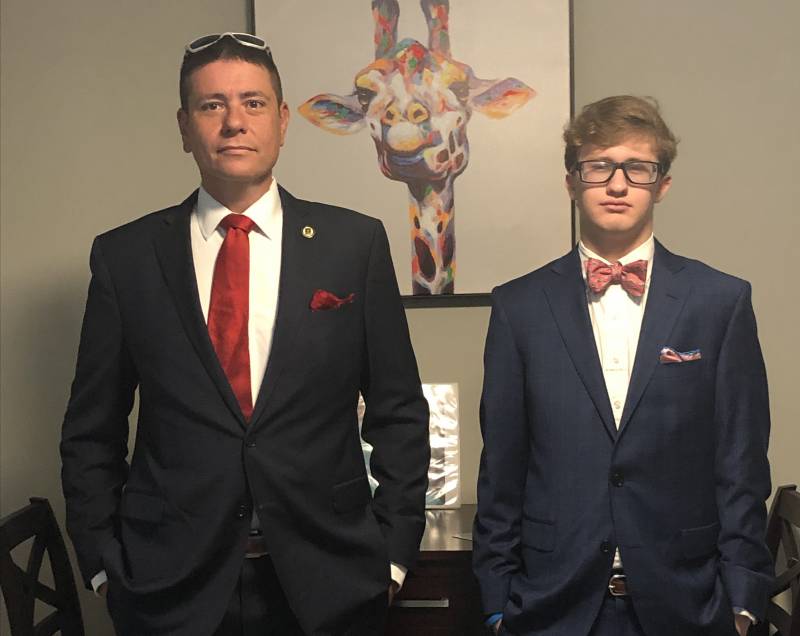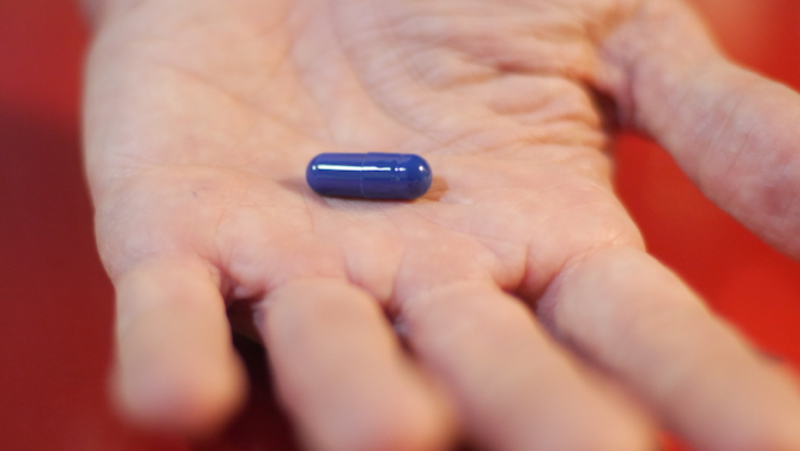When Army Sergeant Jonathan Lubecky returned to the U.S. from Iraq more than a decade ago, simple activities, like family trips to theme parks or the county fair, overwhelmed him.
He recalls “panic attacks, intrusive thoughts. I’d get auditory and olfactory flashbacks.” Along with an “intense fear that bad things were about to happen.”
He’d spent some of his deployment at a base in Iraq that caught mortar fire thousands of times, he says. One mortar even landed next to a porta-potty while he was inside.
After his return home, doctors diagnosed him with a traumatic brain injury and post-traumatic stress disorder, or PTSD.
Lubecky could not find mental and emotional relief. He tried all kinds of treatment: talk therapy, cognitive behavioral therapy, and multiple medications. None of them worked. Suicidal thoughts plagued him for eight years. He says he tried to kill himself five times.
Out of options, he enrolled in a clinical trial that used psychedelic-assisted therapy. The drug was MDMA — also known as Ecstasy or Molly. Lubecky says it worked.
“I literally went from being in a VA facility inpatient [program] to being Senator Rand Paul’s national veterans director in his presidential campaign in two years because of this therapy,” he says.

Until recently, only participants in clinical trials could qualify for MDMA-assisted therapy. Now the federal Food and Drug Administration has granted researchers what it calls “expanded access.” That means people who can’t find relief other ways — who are “treatment-resistant” — can get this therapy before the FDA approves it.
Rick Doblin established and runs the Multidisciplinary Associations for Psychedelic Studies (MAPS), the nonprofit conducting the MDMA-assisted therapy trials in the U.S., Canada, and Israel.
Doblin said the FDA’s move is “a sign that we’re getting over ‘the psychedelic 60s’ — that the FDA is really more science over politics now.
“The FDA is recognizing that there’s a humanitarian crisis with many, many millions of people that have treatment-resistant PTSD,” Doblin says. The U.S. Department of Veterans Affairs estimates that 8 million adults have PTSD.
That disorder results from combat, Doblin says, but also from sexual assault and other trauma.
For those treated with MDMA, 54% no longer had PTSD symptoms after therapy. Researchers found that number increased to 68% a year after treatment.
The federal Controlled Substances Act classifies MDMA as an illegal Schedule 1 drug. While the FDA is expanding access to just 50 people beyond the clinical trial, Doblin and his team hope to increase that number, and to see the FDA approve the treatment by 2022.
Lubecky, the Army veteran, now works for MAPS as its Veterans and Governmental Affairs Liaison. He says making this treatment available to even a small number of people could mean the difference between life and death.
“The MDMA-assisted therapy,” he says, “is the reason that my stepson Joey has a father instead of a folded flag.”
